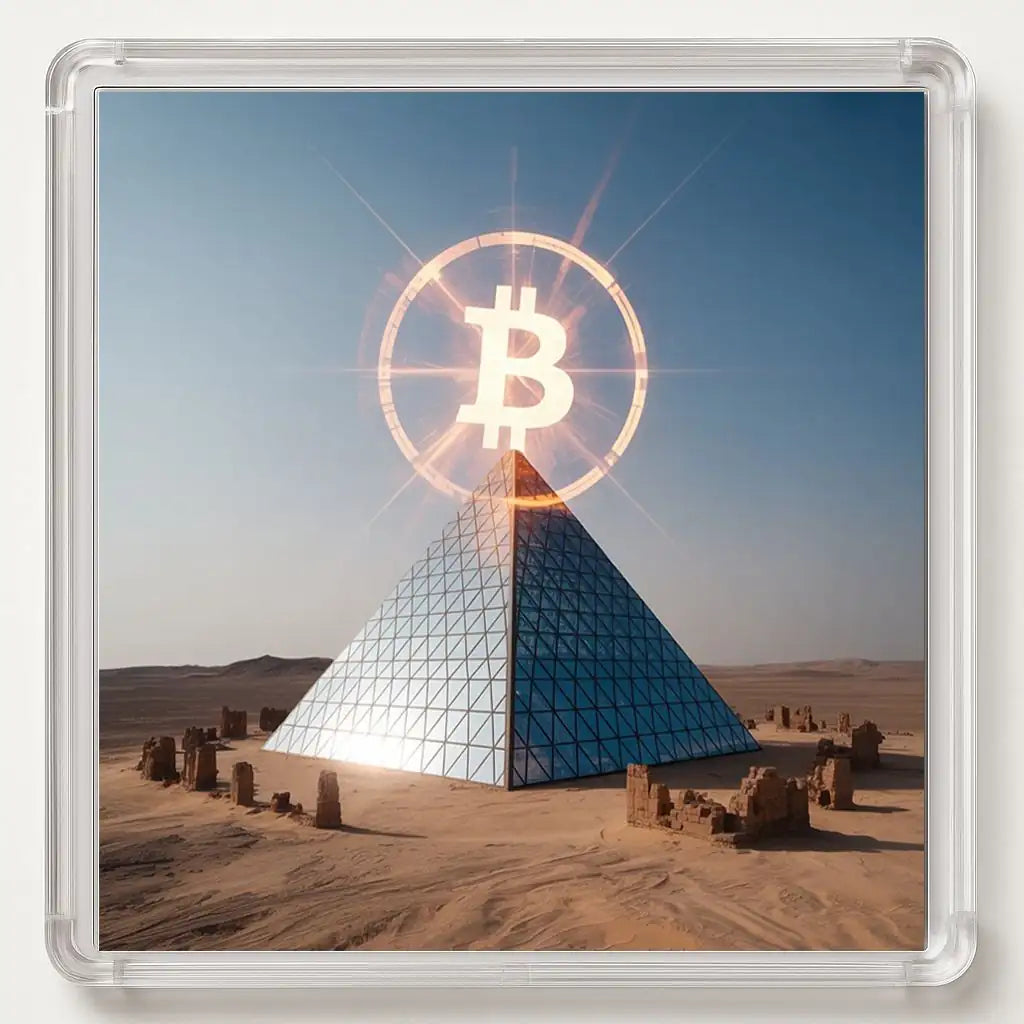
IS BITCOIN A RELIGION? A CULT?
Share
Reflecting on Bitcoin Maximalist Symbols, Jargon, and Rituals
Bitcoin is much more than a technology. For many, it's a revelation. And like any revelation, it brings with it its beliefs, its rituals, its prophets, its coded language. One only has to enter a Bitcoin meetup or scroll through an X-rated (formerly Twitter) feed to see the extent to which the Bitcoin universe has developed a quasi-religious identity.
Bitcoin maximalists—those radical believers who swear by BTC, to the detriment of all other cryptocurrencies—speak in messianic terms. Satoshi Nakamoto isn't just a pseudonym. He's a prophetic figure. He disappeared like a Zen master, leaving behind a sacred book: the Whitepaper. This nine-page document is studied, cited, and interpreted like a founding text.
The Cult of HODL
Among the Bitcoiners' commandments, HODL is king. HODL is the ultimate act of faith: refusing to sell, no matter what. Holding on through the drops, the FUDs, the economic crises. Believing that, sooner or later, Bitcoin will triumph. Added to this is stacking sats : accumulating satoshis like lighting candles. Each micro-purchase is an act of devotion.
Important dates—like January 3rd (Genesis Block)—are celebrated as religious holidays. Pilgrimages take place to conferences like Bitcoin Miami or BTC Prague. People come to listen to the movement's high priests: Michael Saylor, Jack Dorsey, Lyn Alden, and Adam Back. Each preaches a vision of the future based on individual autonomy, decentralization, and the separation of money and the state.
Symbols: ₿, the orange pill, the nodes
Bitcoin iconography is extremely rich. The ₿, inspired by the dollar and fiat currencies, has become a rallying sign. The “orange pill” is a reference to The Matrix: taking this pill symbolizes an irreversible awakening to monetary truth. Once “looted,” there's no going back. And the nodes? They are the home altars of this new faith. Running one at home is a sign of deep commitment, a way to directly participate in maintaining the sacred network.
A cult? Or a counterculture?
So, is Bitcoin a cult? The word is loaded, often pejorative. Yet, it must be recognized that the movement's codes can sometimes seem impenetrable, even fanatical, to the uninitiated. But behind this apparent radicalism lies a powerful form of resistance. A counterculture born of a rejection of the banking system, a distrust of nation-states, and a deep desire for individual freedom.
Bitcoin doesn't impose anything. It offers an alternative. Everyone is free to join, leave, believe in it or not. No gurus, no membership fees. Just an open, transparent, and inviolable protocol. In this respect, Bitcoin isn't a religion, but it shares some of its attributes: a transcendent worldview, a close-knit community, and a practice that transcends the individual.
Bitcoin isn't here to convert, but to liberate. And if some see it as a cult, it's perhaps because, for once, faith is based on code and not promises.
Welcome to 100 Blocks.
👉 Also worth reading:
